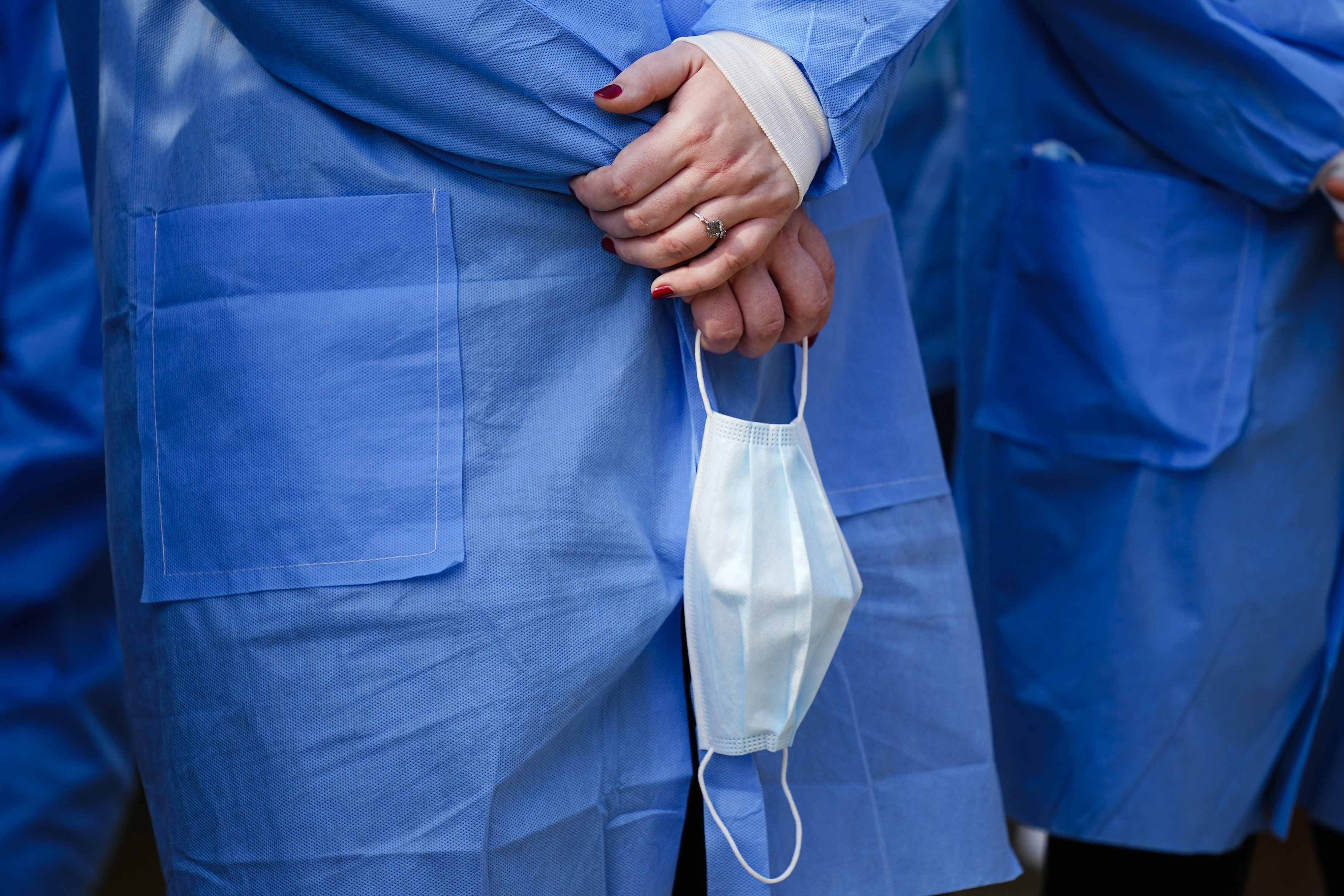In many Bay Area counties, COVID-19 hospitalization numbers are up, mirroring some summer surges seen earlier in the pandemic. While the data shows some promise that flu and RSV numbers are plateauing or declining in some places, health officials are still urging precautions to protect against COVID-19, RSV and the flu. With many people already taking off on holiday travels, an infection with any of those three illnesses still has the potential to turn their holiday plans upside down.
COVID-19 Hospitalizations
In Alameda County, the number of people hospitalized with COVID-19 is trending upward. The county's dashboard shows 167 people hospitalized with COVID on December 15. That number is still far off from the peak hospitalizations with COVID-19 during the surge of January 2021 (458) or January 2022 (450). However, if the hospitalizations continue to rise, the number could approach the peak numbers of COVID-19 hospitalizations in the summer of 2020 (213) and the summer of 2020 (197) in the county.

COVID-19 hospitalizations are also trending upward in San Francisco. The latest data on San Francisco's COVID-19 dashboard shows 113 people hospitalized with COVID-19 on December 13. For comparison, San Francisco had 111 COVID-19 hospitalizations at the peak of the summer surge during 2020, 123 COVID-19 hospitalizations at the peak of the summer surge in 2021, and 148 COVID-19 hospitalizations at the peak of the summer surge in 2022.

"I would definitely say that the numbers are going up,” said Dr. Abraar Karan, an infectious disease physician and researcher at Stanford University.
However, Karan noted that because we are still in the middle of the middle of the holiday season, it is tough to say how long this COVID surge will last.
He recommends good indoor filtration and wearing high quality masks (like N95s and KN95s), which will protect not only against COVID-19, but also against RSV and flu.
Multiple Illnesses Circulating
Get a weekly recap of the latest San Francisco Bay Area housing news. Sign up for NBC Bay Area’s Housing Deconstructed newsletter.
Just this week, health officials from 11 Bay Area counties and the City of Berkeley sounded the alarm that the continued circulation of COVID-19, RSV, and flu is putting a strain on the healthcare system. These county health officials urged the public to get their flu vaccines and their bivalent COVID-19 booster shots.
California's latest data suggests a slight decline in the flu, with a decrease in clinical lab detections of the flu by 0.7% December 4 though December 10 as compared to the week before.
U.S. Centers for Disease Control Data is also showing a dip in RSV detections in California in December as compared to October and November.
White House COVID-19 Response Coordinator Dr. Ashish Jha told NBC News Saturday, "it really looks like RSV has peaked and is on its way down."
But Dr. Karan noted these trends are not a reason to forgo precautions during the holidays.
"Yes, RSV is coming down, flu is coming down, but you can still get infected," Karan noted.
"Lowering your risk where you can just makes sense,” he added.
Karan emphasized that taking some precautions over the holidays is better than taking none at all.
“Reducing risk is not an all-or-nothing activity, you know if you can’t wear a mask at all times, if you’re doing activities where you can’t wear a mask, that’s OK, you should still wear a mask when you can,” he explained.
Plus, Karan added, using at home COVID-19 testing is an easy way to reduce risk before holiday gatherings.



